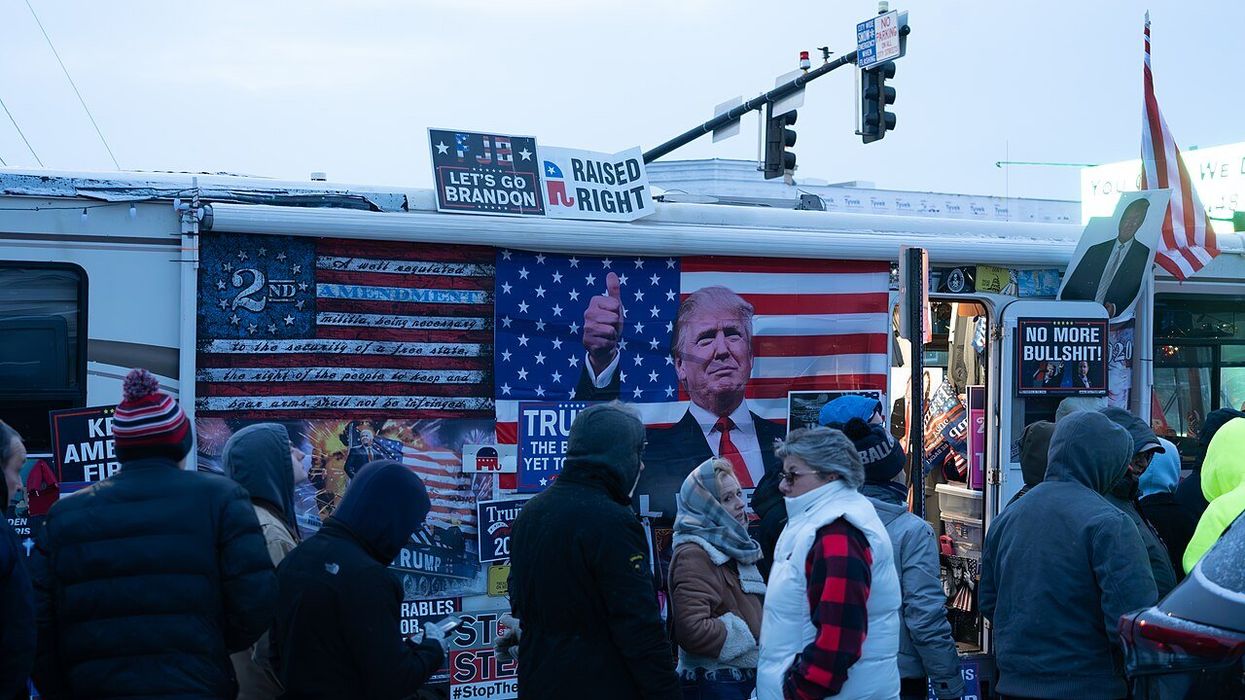Legal expert lays out 4 crucial things to remember about Trump’s ballot eligibility

Voters in Manchester, New Hampshire on January 20, 2024 (Creative Commons)
January 31, 2024 | 07:16AM ETBank
On Tuesday, January 30, the Illinois Board of Elections ruled to keep Donald Trump on the state's presidential ballot and rejected the argument that he is ineligible for their ballot based on Section 3 of the U.S. Constitution's 14th Amendment.
This decision puts the Illinois Board of Elections on the same page as officials in Michigan and California, who have also decided against removing Trump from their presidential ballots. But it puts them at odds with the Colorado Supreme Court and Maine Secretary of State Shenna Bellows, both of whom have removed Trump from their ballots.
Meanwhile, other states continue to grapple with Trump's eligibility for their ballots and Section 3, which states that "an officer" who has engaged in "insurrection" is disqualified from certain positions. And the matter may be resolved once and for all when the U.S. Supreme Court examines Trump's challenge to the Colorado ruling. Oral arguments in that case, Trump v. Anderson, are scheduled for Thursday, February 8.
POLL: Should Trump be allowed to hold office again?
In a listicle published by the conservative website The Bulwark on January 31, law professor and former federal prosecutor Kimberly Wehle lays out "four things to keep in mind about the debate over whether Trump is constitutionally disqualified from office."
They are: (1) "Because Congress has never passed a federal law authorizing lawsuits to enforce Section 3, the litigation is happening under state law," (2) "Even a small number of states excluding Trump from the ballot could keep him from the White House," (3) "Why did the Supreme Court agree to hear the Colorado case?", and (4) "The Court should be careful not to read Section 3 out of the Constitution altogether."
"The Colorado case is guaranteed to produce divided opinions," Wehle explains. "If the (U.S. Supreme) Court rules in Trump's favor by overruling Colorado, there are a number of directions it could go to justify its decision. One option: The Court could rule that Section 3 is a dead letter unless Congress passes a law implementing it — which, with one chamber led by Republicans, Congress won't do. That would at least have the benefit of keeping Section 3 on the back burner for future insurrectionists who would be 'king.'"
Wehle continues, "Or it could rule that presidents are not covered by Section 3 — on the dubious claim that they are not 'officers' of the United States — that January 6th wasn't an 'insurrection,' an assertion that borders on laughable; or that because Trump stayed on the sidelines and didn't engage in violence on the ground, he didn't 'engage in' insurrection at all…. If the Court rules that Trump didn't engage in insurrection on January 6th, that future insurrectionist presidential candidate will do so with the blessing of the Supreme Court."
READ MORE: Former federal prosecutor warns of SCOTUS’ 'very slippery slope' in Trump Colorado decision
Kimberly Wehle's full article for The Bulwark is available at this link.